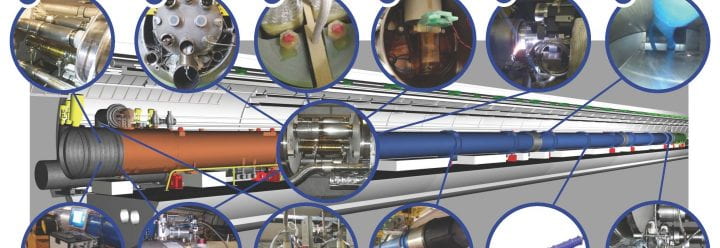The SCIPP theory effort in theoretical particle physics is quite broad, encompassing traditional particle phenomenology and model building, aspects of particle astrophysics and cosmology, as well as more speculative topics including string theory. With the start of operations at the Large Hadron Collider (LHC), with the ongoing and lively Fermi-LAT activities, and with the range of ongoing experiments associated with searches for dark matter, the bulk of the group’s effort now and for the foreseeable future is focused on implications of the experimental program for particle physics model building and phenomenology.
Stefano Profumo works on a variety of problems at the interface of particle physics, astrophysics and cosmology, including theoretical and phenomenological aspects related to searches for dark matter, the physics of the electroweak phase transition and its implications for baryogenesis, and high-energy astrophysics, including cosmic rays and gamma ray studies. Howard Haber devotes much of his effort to the phenomenology of particle colliders including the Tevatron, the LHC and a future International Linear Collider (ILC), with an emphasis on the physics of Higgs bosons and supersymmetry. Tom Banks and Michael Dine, as well as Haber, engage in a range of model-building activities aimed at predicting phenomena due to new physics beyond the Standard Model which may be seen at the LHC, and hopefully probed further with subsequent instruments. In more speculative aspects of particle physics, both Banks and Dine are active workers in string theory. Their focus is on understanding how string theory might be related to phenomena we actually see in nature, and on a set of foundational issues.
In the physics of the extreme early universe, Banks, Dine (but also Anthony Aguirre) are engaged in studies ranging from the nature of the dark energy to models of inflation. At an even more fundamental level, much of the work of Aguirre and Banks is devoted to developing a conceptual framework for the big bang theory. The theoretical particle physics group also benefits heavily from the presence of Joel Primack and of Piero Madau whose work on simulations of physics of galaxy formation and N-body simulations are highly relevant to understanding signals of dark matter.
Faculty
Research Projects


